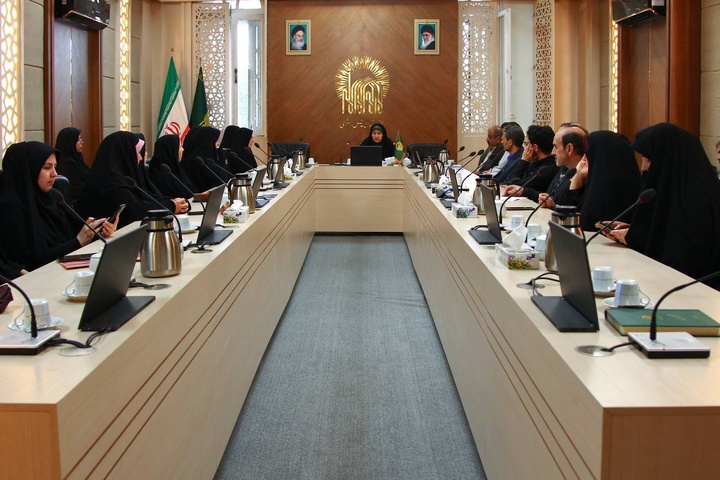The meeting was held on the occasion of the return of Mahboubeh Farimani, head of Astan Quds Razavi’s Documents Department, from her scientific trip to Japan in the form of routine cultural Tuesdays of Astan Quds Razavi.
Talking about reason behind the trip, Farimani said: “The trip was organized at the invitation of the Institute for Asian Studies at University of Tokyo and according to the memorandum of understanding concluded between this university and Organization of Libraries, Museums, and Document Center of Imam Reza holy shrine in March 2025”.
Farimani added: “Participation in international symposium of "Libraries and Archival Activities in the Early Modern Period in East Islamic World," at Research Institute for Languages and Cultures of Asia and Africa at Tokyo University of Foreign Studies on March 20, and presenting a joint paper with Behzad Nemati, an expert at Astan Quds Razavi’s Islamic Research Foundation, on the topic of "Examination of the Oldest Remaining Lists from Astan Quds Razavi Library," was among my activities during this trip”.
She went on to say: “Libraries and archival activities played a crucial role in shaping intellectual, cultural, and religious landscapes of pre-modern Islamic world. Since early 21st century, fundamental research on libraries and book culture, based on manuscripts and documentary resources, began, especially in the field of Arabic and Turkish historical studies”.
The official stated: “However, comparable research focusing on other regions of the Islamic world, particularly Iran and India, has been relatively underexplored. The symposium was to address this gap by bringing together researchers from the UK, Iran, Germany, and Japan to examine complex history of the origins of manuscripts, endowments, library cataloging, and preservation in Iran and India during early modern period”.
According to her, through these researches, the symposium seeks to deepen understanding of cultural, intellectual, and religious dynamics of book culture in these regions and its broader significance in the Islamic world.
Elsewhere, Farimani referred to the existence of about 70 thousand historical documents related to the Safavid period in the archive of Astan Quds Razavi documents, adding: “Holding a two-day workshop on "Typology of Astan Quds Documents in the Safavid Era" was another panel I attended during the trip”.
“Although documents of Astan Quds Razavi pertain to the management of a religious site, they can clarify several issues. For example, they show the management style of one of the largest endowments in the Islamic world over a period of more than 400 years. Since a few official documents from Safavid archive have survived, these documents can illustrate the documentation style of this period, especially in the financial domain”.

A group of managers and researchers of the Organization of Libraries, Museums, and Documents Center and Scientific and Cultural Organization of Astan Quds Razavi in a meeting at Central Library of the holy shrine highlighted the importance of Astan Quds Razavi Safavid era documents for international researchers.
News Code 6104

Your Comment